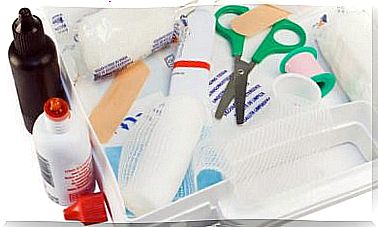5 Life Skills You Should Teach Your Kids

Many parents unknowingly focus their children’s education on matters of discipline, based on punishing children when they misbehave and, where appropriate, rewarding them when they behave well. But education is much more than that. Raising a child presupposes teaching him life skills that will allow him to be a responsible and successful adult tomorrow.
Our behavior and example as parents, as well as the way we apply discipline and set the rules, will determine the development of these skills. On the other hand, keeping in mind the development of these skills will allow us to encourage them in our children, as well as providing us with great personal growth.
self-discipline
Self-discipline is an essential skill for adults. But we need to start encouraging self-discipline as soon as possible and setting an example to really reach our children. Children must learn self-discipline in matters such as using money, performing daily tasks, health habits and time management.
Constantly reprimanding the child when he does his tasks, completely organizing his day, not delegating tasks because the child does not do them as well as we would like, or constantly helping the child with difficult tasks are not ways to teach self-discipline.

The ultimate goal of self-discipline is to create independent children who are able to do what they need to do without question. It’s making them acquire habits that make their daily lives easier. To achieve this, parents need to be around teaching children what to do and setting an example.
The best way to teach self-discipline is to provide hard consequences when children misbehave as well as positive consequences when they misbehave. In this sense, applying a reward system to actions related to self-discipline is very effective. You should start doing this as soon as possible.
Control impulses
Children slowly develop impulse control, but help is needed. Once again, the example is fundamental for them to understand how important it is to control themselves and for them to be able to acquire the skills to do so.
Positive reinforcement is a good way to motivate the child to control and deal with his impulses. Congratulate your child when he demonstrates that he has been able to think before he acts, when he waits his turn to speak, or when he leaves when he gets angry.
In the same way, you should try to practice self-control when you are angry and not get mad when your child interrupts or yells at you because you are angry. Otherwise, they will be inconsistent and contradictory attitudes.
Make proper decisions
Children don’t see problems the way we adults see them. They need help learning skills like problem solving and they need to practice this by making healthy decisions on their own.

When your child is having problems you should talk so that he can develop the ability to choose healthy solutions. But it must be the child who decides what needs to be decided. She must be aware that this is what she wants. Parents must avoid manipulation to get the child to do what they want. They also shouldn’t always make all the decisions for the child.
Another fundamental aspect for children to learn to make decisions on their own is to let them bear the consequences of their own decisions. Only then will she learn that actions have consequences and, thus, will she begin to analyze the next situations beyond personal and immediate satisfaction.
Social skills
Most kids need a lot of help learning social skills. As well as many opportunities to practice those skills. Young children must learn to share, be polite, and be kind so that they can develop healthy friendships.
At first it may be easy, but as children grow they may need help to shape their social skills. For this, it is necessary to set an example on a daily basis. We must not only tell them what to do, but show ourselves as parents what must be done. It is also necessary to help the child to identify their feelings and provide opportunities for them to express them.
Emotional control
Teaching children effective and healthy ways to deal with emotions is a fundamental life skill that little ones should learn. When children cannot express themselves verbally or when they don’t know how to act in the face of uncomfortable emotions, they often get angry or aggressive.
For children to learn to deal with their emotions, it is first necessary to teach them to identify what they are feeling. Once she knows what’s going on, when she names the emotion, she may be able to develop habits that allow her to express and deal with those emotions.
Emotional control is the foundation of developing emotional intelligence. This is more important than IQ when it comes to success in life as a whole.









